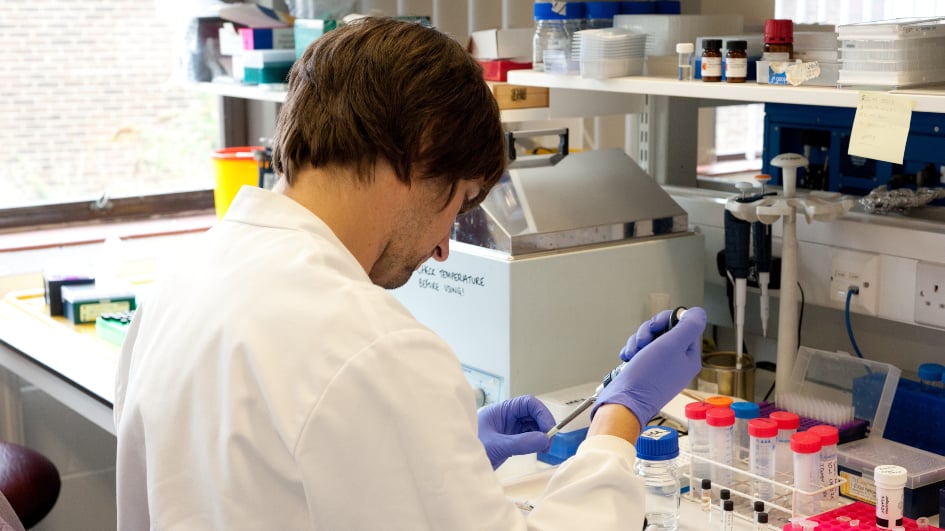
The division aims to exploit the vulnerabilities of cancer cells by discovering novel and innovative small-molecule drugs for the personalised treatment of cancer. The division also develops biomarkers designed to confirm the effectiveness of molecularly targeted therapies, and help doctors to determine which therapy will benefit each patient.
The division brings together a wide variety of disciplines, including cell and molecular biology, pharmacology, tumour modelling, computational and structural biology, and medicinal chemistry, in order to select promising drug targets, design effective prototype drugs and biomarkers, and develop strategies to counter drug resistance.
The ICR’s track record in therapeutics includes the discovery of carboplatin – still the global standard of care for patients with a wide range of solid tumours – and abiraterone, approved by NICE in 2012 for use in advanced prostate cancer. Since 2005, the ICR has discovered 21 preclinical drug candidates, and taken 13 new drugs into clinical trials. The ICR also discovered abiraterone, which was approved by NICE in 2012, to treat advanced prostate cancer.
A priority for the Division of Cancer Therapeutics is to tackle the challenge of tumour heterogeneity, cancer evolution and resistance to drug treatments. It has pursued the discovery and development of HSP90 inhibitors, as one way of preventing or overcoming drug resistance. The division is also interested in ways of planning drug regimens or combinations to avoid or overcome resistance.
Scientists in the division have also created CanSAR, a powerful and freely available online cancer knowledgebase, designed to support cancer research and drug discovery. ICR scientists have used CanSAR to integrate complex biological, chemical and pharmacological data to identify 46 previously overlooked but potentially 'druggable' cancer targets.
Awards
The research output of the Centre for Cancer Drug Discovery and the Drug Development Unit received the American Association for Cancer Research’s 6th Team Science Award in 2012. The AACR citation for this prestigious award said: “This team’s research is an outstanding example of how innovative cancer research conducted by a highly functioning translational team can start with biologic hypotheses and ultimately lead to much-needed cancer therapeutics.”
In December 2015, the ICR was
presented with the British Pharmacological Society’s UK Pharmacology on the Map award for institutions that have made a significant contribution to improving human health through drug discovery and pharmacology research.